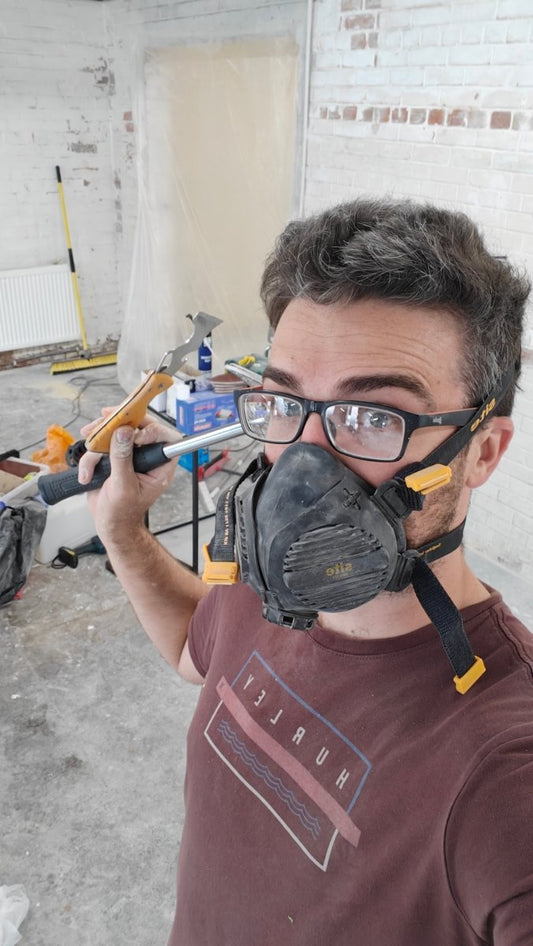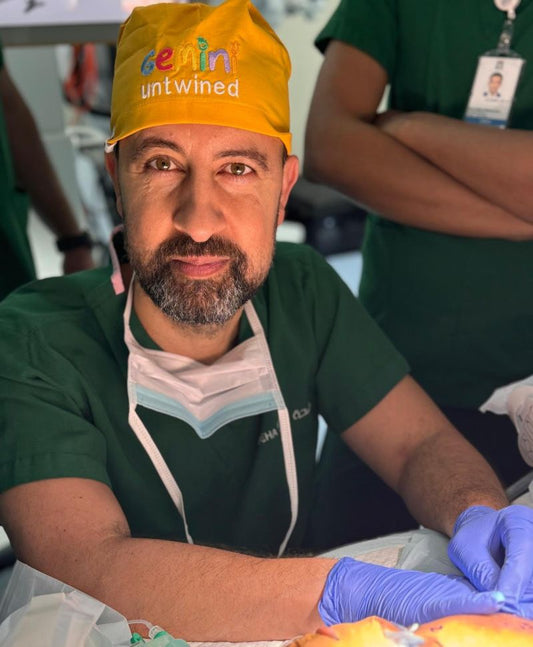
What Do Doctors Wear On Their Head During Surgery?
What Do Doctors Wear On Their Head During Surgery? Complete Guide to Surgical Headwear
If you've ever wondered what that distinctive headwear is that doctors and surgeons wear in the operating room, you're not alone. Surgical headwear is a critical component of medical attire that serves multiple important functions beyond just looking professional. Let's explore the different types of surgical headwear, their purposes, and how to choose the right option for your medical practice.
Quick Answer: Types of Surgical Headwear
- Scrub Caps: Lightweight caps that cover hair completely
- Surgical Hoods: Full head and neck coverage for sterile procedures
- Bouffant Caps: Disposable caps with elastic bands
- Bandana-Style Caps: Tie-back caps for secure fit
- Custom Caps: Personalized with names, roles, or designs
The Primary Functions of Surgical Headwear
Surgical headwear serves several critical purposes in medical environments:
1. Infection Control
- Hair containment: Prevents hair and skin particles from contaminating sterile fields
- Barrier protection: Creates a barrier against airborne pathogens
- Hygiene maintenance: Keeps personal hygiene separate from patient care areas
2. Professional Standards
- Uniform appearance: Creates a professional, cohesive team look
- Role identification: Different styles can indicate different roles or departments
- Patient confidence: Professional appearance builds patient trust
3. Practical Benefits
- Comfort: Keeps hair out of the face during long procedures
- Sweat management: Absorbs perspiration during intensive surgeries
- Equipment compatibility: Works with surgical loupes, headlights, and other equipment
Types of Surgical Headwear: A Detailed Comparison
| Type | Best For | Key Features | Our Recommendation |
|---|---|---|---|
| Scrub Caps | General surgery, outpatient procedures | Lightweight, breathable, reusable | Custom Surgical Caps |
| Surgical Hoods | Orthopedic, cardiac, neurosurgery | Full coverage, maximum protection | Surgical Hood Caps |
| Bouffant Caps | Quick procedures, visitors | Disposable, elastic band, universal fit | Available on request |
| Bandana Style | Long procedures, secure fit needed | Tie-back design, adjustable, comfortable | Custom designs available |
Choosing the Right Surgical Headwear by Medical Specialty
Surgeons and Operating Room Staff
For surgeons and OR staff, the choice of headwear depends on the type of surgery and sterility requirements:
- High-risk surgeries: Surgical hoods provide maximum coverage and protection
- General procedures: Traditional scrub caps offer comfort and functionality
- Outpatient surgery: Lightweight caps with easy care properties
Anesthesiologists
Anesthesiologists often prefer caps that:
- Don't interfere with stethoscope use
- Allow easy access to the patient's airway
- Provide comfort during long procedures
Surgical Technicians and Nurses
Surgical technicians and nurses benefit from:
- Caps that stay secure during active movement
- Easy-to-clean materials for multiple daily procedures
- Comfortable fit for 12+ hour shifts
Material and Design Considerations
Fabric Choices
Popular Fabric Options
- 100% Cotton: Breathable, comfortable, easy to wash
- Moisture-Wicking Fabrics: Ideal for long surgeries and hot environments
- Antimicrobial Treatments: Additional protection against bacteria and odors
Design Features to Consider
- Adjustable ties vs. elastic: Ties offer custom fit, elastic provides convenience
- Ponytail accommodation: Special designs for long hair
- Equipment compatibility: Designed to work with surgical loupes and headlights
Personalization and Professional Identity
Modern surgical headwear goes beyond basic functionality. Many medical professionals choose to personalize their caps with:
Custom Embroidery Options
- Name and title: Professional identification caps
- Department or specialty: Clear role identification
- Inspirational messages: Motivational quotes or patient-focused messages
- Medical symbols: Specialty-specific designs and symbols
"Having my name and role embroidered on my surgical cap has improved patient communication significantly. Patients feel more comfortable when they can easily identify who I am and my role in their care."
- Dr. Michael Chen, Orthopedic Surgeon
Care and Maintenance of Surgical Headwear
Washing Instructions
Proper care ensures your surgical headwear maintains its protective properties and professional appearance:
- Pre-treatment: Address any stains immediately after use
- Water temperature: Wash in warm water (40-60°C) for effective sanitizing
- Detergent choice: Use hospital-grade or antimicrobial detergents when possible
- Drying: Air dry or use low heat to prevent shrinkage
- Storage: Store in clean, dry environment away from contaminants
Replacement Guidelines
- Daily use caps: Replace every 6-12 months or when showing wear
- Occasional use caps: Can last 1-2 years with proper care
- Signs to replace: Fading, stretching, tears, or persistent odors
Customer Testimonials: Real Experiences from Medical Professionals
"I've been using Medicus surgical caps for three years now. The quality is exceptional, and the custom embroidery has held up perfectly through hundreds of washes. My patients always comment on how professional they look."
- Dr. Sarah Williams, General Surgeon
"The surgical hood design is perfect for our orthopedic procedures. It provides the coverage we need while remaining comfortable during 6-hour surgeries. The variety of colors helps our team coordination."
- Mark Rodriguez, Surgical Technician
Frequently Asked Questions
Q: What's the difference between a scrub cap and a surgical hood?
A: Scrub caps cover the hair and top of the head, while surgical hoods provide full head and neck coverage. Hoods are typically used in higher-risk surgeries requiring maximum sterile protection.
Q: How often should surgical headwear be replaced?
A: With daily use, replace every 6-12 months. Look for signs of wear like fading, stretching, or persistent odors as indicators it's time for a new cap.
Q: Can I personalize my surgical headwear?
A: Absolutely! Our custom surgical caps can be embroidered with names, roles, or specialty-specific designs.
Q: What material is best for surgical caps?
A: 100% cotton or cotton-poly blends are most popular for their breathability, comfort, and easy care properties. Choose based on your specific needs and preferences.
Q: Do different medical specialties require different types of headwear?
A: While not strictly required, different specialties often prefer specific styles. For example, orthopedic surgeons often choose surgical hoods for maximum protection, while outpatient procedure doctors may prefer lightweight scrub caps.
The Future of Surgical Headwear
As medical technology advances, so does surgical headwear. Current innovations include:
- Smart fabrics: Temperature-regulating and moisture-wicking materials
- Antimicrobial treatments: Built-in protection against bacteria and viruses
- Ergonomic designs: Better integration with surgical equipment
- Sustainable materials: Eco-friendly options for environmentally conscious practices
Find Your Perfect Surgical Headwear
Join thousands of medical professionals who trust Medicus Caps for their surgical headwear needs.
Related Articles for Medical Professionals
- Why Do Surgeons Wear Scrub Caps?
- Surgical Caps for Small Heads
- Choosing Your Scrub Cap Style
- The Science Behind Green Surgical Scrubs
About Medicus Caps: We specialize in high-quality surgical headwear designed by and for medical professionals. Every cap is crafted with attention to detail, comfort, and the demanding requirements of modern healthcare environments.




